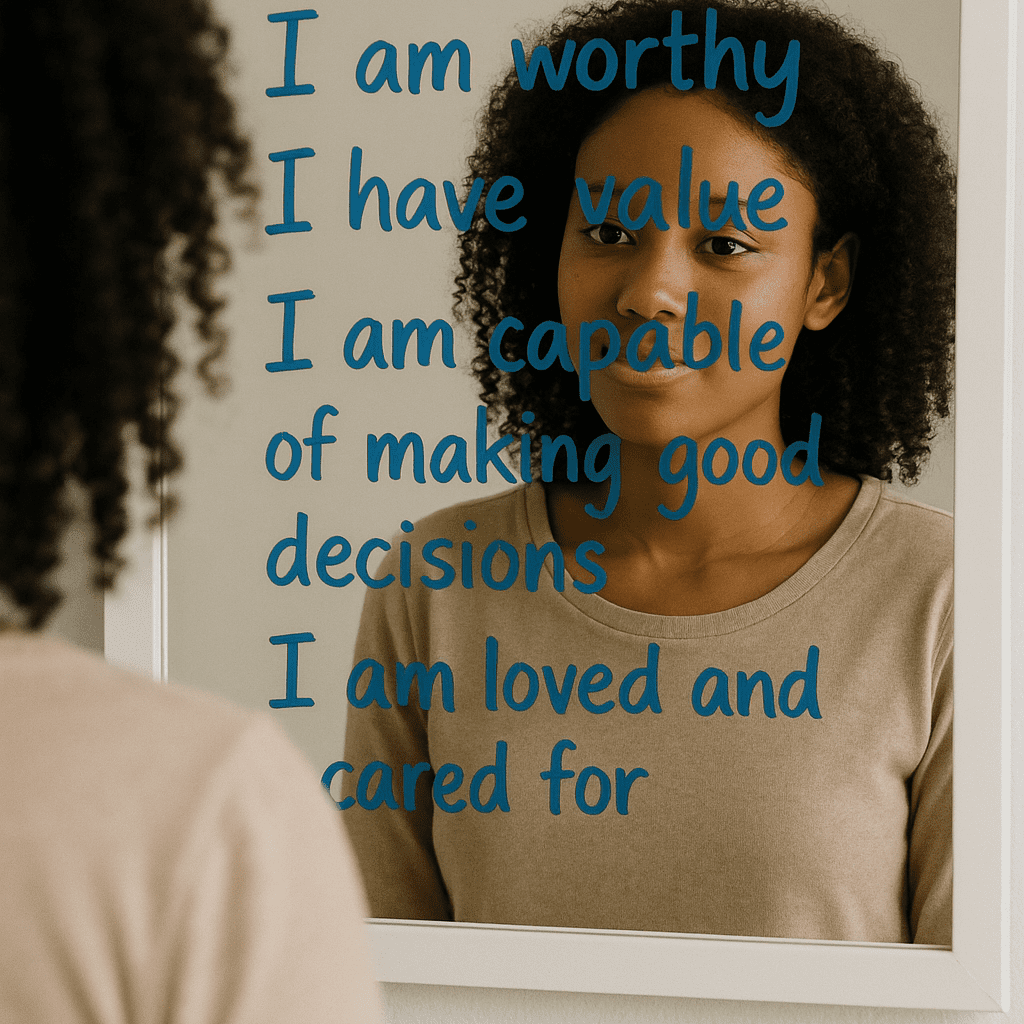You have probably been there, refreshing your phone to see if anyone had liked your post, awaiting a response to an important message, or seeking approval from a boss or partner.
But why does this matter so much?
Our biological makeups naturally programme us to seek validation, not because we are weak, but because it is part of who we are. But this need, if left unchecked, can undermine self-worth and mental well-being.
In this post, we will break down the reasons we crave validation, explore its evolutionary roots, and provide evidence-based strategies to find inner validation, so you can stop chasing approval and start accepting your worth.
What Is Validation, really?
Validation is the act of acknowledging that your experience, feeling, or thought is true. It is either external (other people) or internal (you).
In short:
- External validation: admiration, likes, compliments, approval from others
- Internal validation: This refers to the ability to accept, value, and agree with your own thoughts, feelings, actions, and worth irrespective of feedback. It includes self-awareness, self-trust, emotional self-awareness etc.
The Psychology of Why We Crave Validation
1. Low Self-Esteem
A lack of internal self-esteem esteem will cause an individual to look for validation from other sources. the external to validate him. When they do not receive the approval they so seek from others, it reinforces their negative perceptions about themselves thus creating a self-perpetuating cycle.
2. Pleasing Others to Avoid Being Alone
At times individuals forgo their own needs simply to please others because, deep down they are afraid that being honest might push people away. This fear of being left behind, forgotten or judged makes external approval becomes a top priority for individuals who want to be perfect in everything.
3. Developmental Roots: Childhood Experiences
Many children were raised on conditional love. That is, they are rewarded, praised and appreciated when they are good or live up to some expectations and get punished or neglected when they are do otherwise. This creates a blueprint where they base their self-worth on the opinions and approval of those around them.
If internal validation was not modelled in our childhood, we unconsciously look for it externally from others.
The Downside of Chasing External Validation
- Anxiety and Low Self-Esteem: Constantly needing reassurance can fuel anxiety and self-doubt. This dependency can erode self-confidence and keep one from establishing a stable self-image making it hard to believe in our own capabilities.
- Increased Vulnerability to Manipulation: Individuals who seek approval from others are vulnerable to manipulation since they are open to individuals thinking about them. Once people realise that you require their approval, they can easily take advantage and manipulate you to compromise your values or well-being just to gain their acceptance.
- Loss of Identity and Emotional Dependency: When seeking approval-seeking becomes a constant thing, individuals lose sight of who they truly are. They start making decisions based on what others want and give others too much power over their happiness and self-worth rather than what feels right for them. Over time, this can lead to loss of identity, leaving them unsure of who they truly are.
Remember external validation is not entirely a bad thing, but it depends on how we respond or rely on them. That is, you do not always have to agree with people or their actions concerning you. The truth is that people will always have a say, but you decide which of them to tolerate and when to say it is enough.
How to Build Internal Validation: 6 Proven Strategies
1. Practice Positive Affirmations
When you continually reassure and compliment yourself, it helps to challenge negative thoughts you have about yourself. Self-affirmations help reduce defensiveness and strengthen self-worth. Stop the attitude of insulting yourself, instead try saying these to yourself every day:
- I am smart
- I am dedicated
- I am capable of making good decisions
You can repeat these out loud like a mantra or write them out in a journal on a daily basis.

2. Celebrate your achievements
Be happy for yourself for even the smallest milestone achieved. Do not wait for anyone to say you have done well acknowledge your own efforts and be happy for getting that far.
📌You can even create a validation journal for yourself. Every day, write down:
- One thing you did well
- One moment you showed up for yourself
- One emotion you accepted without judgment
💥These simple acts can help rewire your brain to seek self-acknowledgement first.
3. Set Boundaries
Establish healthy boundaries for yourself. You have the right to tell people to stop. Do not give people the right over your life and decisions. If not, they will overcome you with their opinions all in the name of trying to validate you. Do not feel guilty about setting these boundaries.
How to Set Healthy Boundaries with Family and Friends – PsycheShare
5. Limit Social Media Consumption
Limit your time on social media where you continuously seek likes and comments and focus on engaging in real-life activities that nurture your well-being. This reduces the pressure to conform to external standards.
✔ A systematic review by Keles, McCrae and Grealish (2021) linked the frequent use of social media with lower self-esteem and increased depressive symptoms. This in turns media fuels the external validation loop.

6. Seek Therapy
If you have tried everything and the problem still persists, seek professional counselling. You can simply visit the consultation page of PsycheShare to choose from the list of competent therapists.
You are Enough Without the Approval of Others
The need for validation is human. But when we learn to give ourselves the approval we seek from others, we unlock true emotional freedom. You are not someone’s opinion of you.
You are already worthy. And when you find validation within, no one can take it away.
And do not forget, if you have not validated yourself, no amount of validation from anyone else is going to make you feel good about yourself.



[…] As human beings, we naturally seek validation from others especially in terms of how we look. We seek compliments, reassurance, and that subtle approval from others that makes us to pay more attention to our physical appearance as opposed to who we are. Why We Crave Validation and How to Find It Within – PsycheShare […]
[…] Why We Crave Validation and How to Find It Within, PsycheShare explores how seeking external approval can create internal conflict when it clashes […]
[…] explored in Why We Crave Validation and How to Find It Within, we often look outward for affirmation. But once we learn to anchor it within, we become your own […]